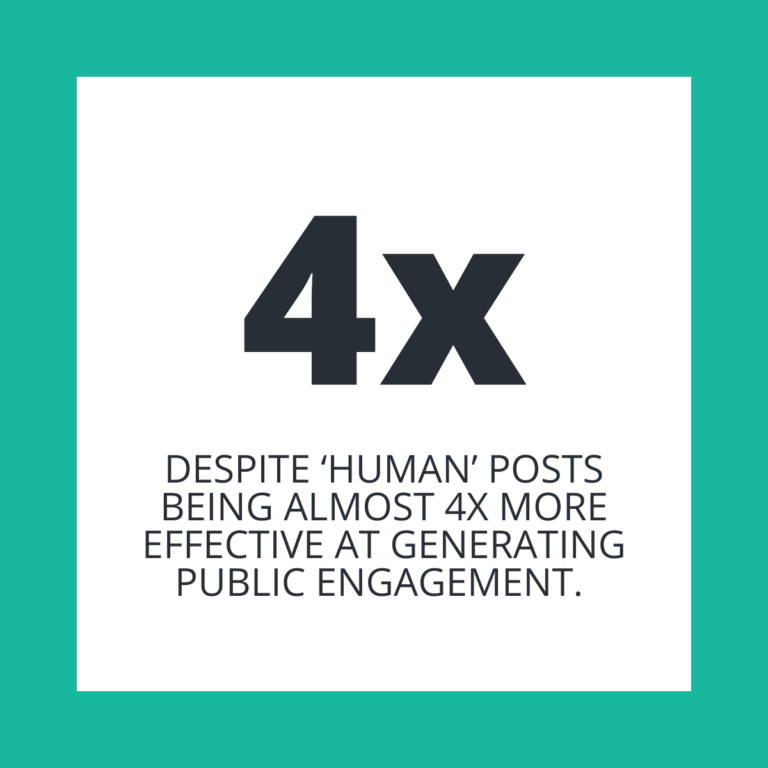THE 2023 DIGITAL REPUTATION REPORT
PUBLIC SECTOR LEADER EDITION
ACCESS YOUR COPY OF THE REPORT
Would you like to learn how our most senior public servants use LinkedIn? Six months analysed, 100+ leaders, ~1,000 posts, 1,500+ comments and 130,000+ public engagements – and there are PLENTY of gold nuggets. Get your copy of The 2023 Digital Reputation Report: Public Sector Leader Edition now, and ongoing access to our fortnightly newsletter below.
THE REPORT OVERVIEW
The 2023 Digital Reputation Report: Public Sector Leader Edition analysed six months of LinkedIn data for 100+ senior public servants: ~1,000 posts, 1,500+ comments and over 130,000 public engagements. It is the first in depth report analysing the LinkedIn profiles and activities of leaders across the Australian public service.
Working with research partner the University of Technology Sydney (UTS), Propel analysed 100+ of our most senior public servants – Secretaries, CEOs, Directors-General – to see how they used their individual LinkedIn profiles between 1 March and 31 August 2023.
From this Report, you will find answers to important LinkedIn, communication and reputation questions, including:
- How can LinkedIn best support the sector’s strategic priorities?
- Why is it important for individual leaders to be present, not just agencies?
- What types of content resonate most with online audiences?
- What risks and barriers need to be addressed, and how
- And which leaders provide examples – even role models – to learn from?
The Report reveals one clear, crucial finding: leaders who use LinkedIn to share their human face, voice and values generate a stronger response than their peers. But these leaders are in a small minority.
Of the 100+ leaders analysed, 65% had a LinkedIn profile. While two thirds may seem reasonable, a surprising 45% of these were dormant or ‘inactive’. A further 23% of these were rarely active, with fewer than one post per month.
In fact, only 36% of all 100+ leaders analysed had posted at all in the six month period. When they did post, they were far more likely to talk about work. The Report data shows active leaders were 13x more likely to share ‘work’ posts than ‘human’ posts. This is despite ‘human’ posts being almost 4x more effective at generating public engagement than ‘work’ posts.
We now have evidence for change.
The report surfaces this and other key themes. It shows our LinkedIn feeds are already rich with stories that show the sector’s competence; projects meeting community needs. But its warmth – a key component of trust – is less obvious. Why, and what needs to change? Our research also reveals the empowering effect leaders have on staff when they step up online.
Why aren’t more leaders, and what would compel them to act?
The Report explores perceptions of risk for leaders, and how tweaks to strategy and governance could help clarify the role and value of LinkedIn for the sector. Because there is enormous potential for leaders online, and the future – based on our data – looks increasingly bright.
When leaders are more ‘human’, our data shows they greatly outperform the average – they enjoy 3.5x more followers and generate 5x more public engagements than the average leader on LinkedIn. Reach and influence anyone would value.
The report ends with recommended actions leaders and their teams can implement themselves. Encouragingly, there are already fantastic examples for them to model off – many highlighted in the report.
The example they set reveals the best LinkedIn strategy for public sector leaders: a human-centred one.



AUTHORS, RESEARCHERS & CONTRIBUTOR





MARTIN STEWART-WEEKS
Founder, Public Purpose
Report co-author
LinkedIn
JIM MACNAMARA
Distinguished Professor of Public Communication, School of Communication, University of Technology, Sydney | Research partner
EMILY BOOTH
Research Associate,
School of Communication,
University of Technology Sydney | Research partner
THE HON. VICTOR DOMINELLO
Co-Founder, ServiceGen
Report contributor
DOWNLOAD YOUR COPY OF THE REPORT
Would you like to learn how our most senior public servants use LinkedIn? Six months analysed, 100+ leaders, ~1,000 posts, 1,500+ comments and 130,000+ public engagements – and there are PLENTY of gold nuggets. Get your copy of The 2023 Digital Reputation Report: Public Sector Leader Edition now, and ongoing access to our fortnightly newsletter, via the form below.
